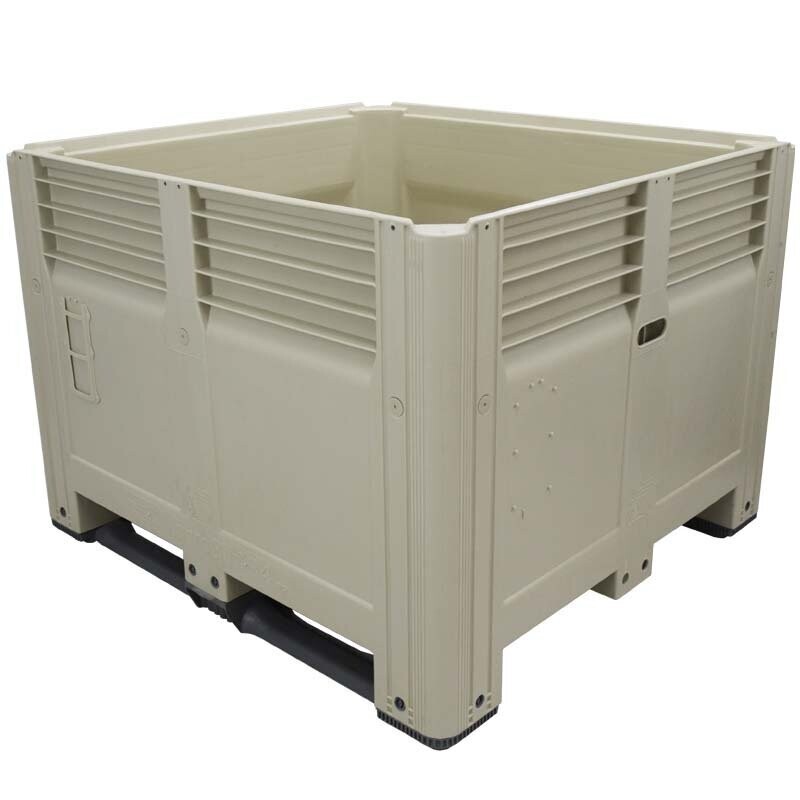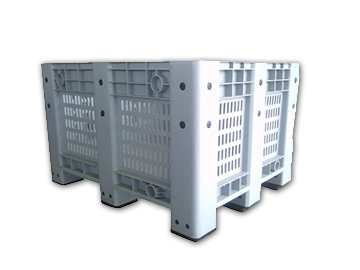Everything About Bulk Plastic Containers: Benefits, Applications, and Industry Insights
Mass plastic containers play a substantial duty in various markets, providing advantages that improve effectiveness and sustainability. Their light-weight nature decreases shipping expenses, while their sturdiness guarantees risk-free storage and transport of diverse products. As business progressively look for eco-friendly remedies, the need for these containers is growing. This raises crucial questions concerning the materials used and the trends affecting their style. What implications do these factors have for the future of mass plastic containers?
Benefits of Mass Plastic Containers
Bulk plastic containers provide a wide range of benefits in different industries. Their lightweight design especially minimizes transport costs, permitting for efficient logistics and simpler handling. Furthermore, these containers give resilience and resistance to weather components, chemicals, and physical effect, guaranteeing the secure storage and transportation of products. The convenience of mass plastic containers enables them to be formed right into different sizes and shapes, dealing with particular market requirements.

Typical Applications Throughout Industries
While numerous markets use bulk plastic containers, their applications are especially famous in markets such as food and drink, pharmaceuticals, agriculture, and manufacturing. In the food and drink industry, these containers are vital for keeping and moving items like grains, fluids, and ready dishes, guaranteeing freshness and safety. The pharmaceutical field depends on mass plastic containers for secure storage of medications and injections, maintaining conformity with stringent guidelines.
In agriculture, these containers facilitate efficient handling and transport of fruit and vegetables, fertilizers, and chemicals, while additionally sustaining lasting methods through recyclability. Manufacturing sectors use bulk plastic containers for parts storage and assembly line procedures, advertising company and operations efficiency. In addition, these containers serve a substantial function in logistics and supply chain management, streamlining the movement of items across numerous markets. Generally, the versatility of bulk plastic containers makes them vital throughout several sectors.
Material and Layout Factors To Consider
When selecting mass plastic containers, product and layout considerations play an important function in making certain performance and conformity with industry requirements. The selection of product greatly affects the container's durability, weight capability, and resistance to environmental aspects. Common products include high-density polyethylene (HDPE) and polypropylene, understood for their toughness and chemical resistance.
Style facets, such as form, closure, and size systems, also affect use. Containers with ergonomic handles and stackable styles enhance storage space efficiency and ease of transportation. In addition, functions like venting or drainage holes might be essential for particular applications, allowing for air flow or liquid elimination.
Compliance with safety and security guidelines, such as FDA authorizations for food-grade applications, is essential. plastic bulk containers. On the whole, cautious consideration of materials and design can enhance performance and durability, guaranteeing that mass plastic containers meet the diverse needs of numerous sectors efficiently
Fads in Mass Plastic Container Use
As markets develop, the usage of bulk plastic containers is increasingly affected by sustainability and performance. Firms are deciding for green products, such as recycled plastics, to lessen environmental effect while preserving resilience. This change is driven by customer demand for lasting techniques and regulative pressures targeted at reducing plastic waste.
Furthermore, the pattern towards automation in logistics and supply chain monitoring is improving container designs. Bulk containers are currently being engineered for compatibility with automated systems, enhancing operational performance. Light-weight styles are also obtaining grip, as they lower check my source delivery expenses and power usage throughout transport.
Additionally, customization is ending up being a focal point, allowing businesses to tailor containers to certain needs, therefore optimizing area and functionality. These fads show a wider commitment to sustainability, technology, and effectiveness within numerous industries, making certain that mass plastic containers proceed to play a vital role in contemporary supply chains.
Ideal Practices for Storage and Transport
Efficient storage space and transport of bulk plastic containers call for adherence to finest methods that boost safety and effectiveness. First, containers ought to be stacked securely, guaranteeing that weight is uniformly distributed to avoid tipping or damage. Making use of pallets can facilitate simpler activity and safeguard the containers from ground moisture. In addition, appropriate labeling is great post to read necessary for fast identification and tracking during transit.
Temperature control is one more essential variable; extremes can endanger the integrity of the materials. When needed, it is advisable to store containers in a climate-controlled atmosphere. For transport, selecting appropriate automobiles designed for bulk lots assurances stability and reduces danger during transportation.
Regular examinations of containers before storage space and transportation help identify any type of wear or damage, permitting for prompt maintenance or replacement. By adhering to these ideal techniques, companies can enhance the lifecycle of bulk plastic containers while preserving functional effectiveness.
Frequently Asked Concerns

Are Mass Plastic Containers Recyclable After Usage?
Yes, bulk plastic containers are often recyclable after use. Recyclability depends on the product kind and neighborhood recycling programs. Appropriate cleaning and sorting are crucial to guarantee they are accepted by reusing facilities.

What Is the Life-span of Mass Plastic Containers?
The lifespan of bulk plastic containers usually varies from five to 10 years, relying on usage conditions, worldly top quality, and environmental variables. bulk plastic containers for sale. Appropriate maintenance can expand their toughness, making them a lasting storage option
Can Bulk Plastic Containers Be Personalized?
Yes, bulk plastic containers can be personalized. Suppliers frequently offer alternatives for size, shade, branding, and product, allowing businesses to tailor containers to their certain demands and improve their product presentation and performance.
Just How Do Bulk Plastic Containers Compare in Cost to Alternatives?
Bulk plastic containers commonly use a reduced expense contrasted to alternatives like steel or glass, due to their light-weight nature and durability. This makes them a cost-effective option for organizations needing efficient storage space remedies.
Exist Safety Laws for Making Use Of Mass Plastic Containers?

Bulk plastic containers play a substantial role in various sectors, using benefits that enhance efficiency and sustainability. While numerous industries utilize bulk plastic containers, their applications are specifically famous in sectors such as food and drink, pharmaceuticals, farming, and production. Manufacturing industries utilize bulk plastic containers for parts storage and assembly line procedures, promoting organization and operations efficiency. When selecting mass plastic containers, product and layout factors to consider play a vital role in guaranteeing functionality and compliance with sector standards. As sectors develop, the use of bulk plastic containers is increasingly affected by sustainability and performance.